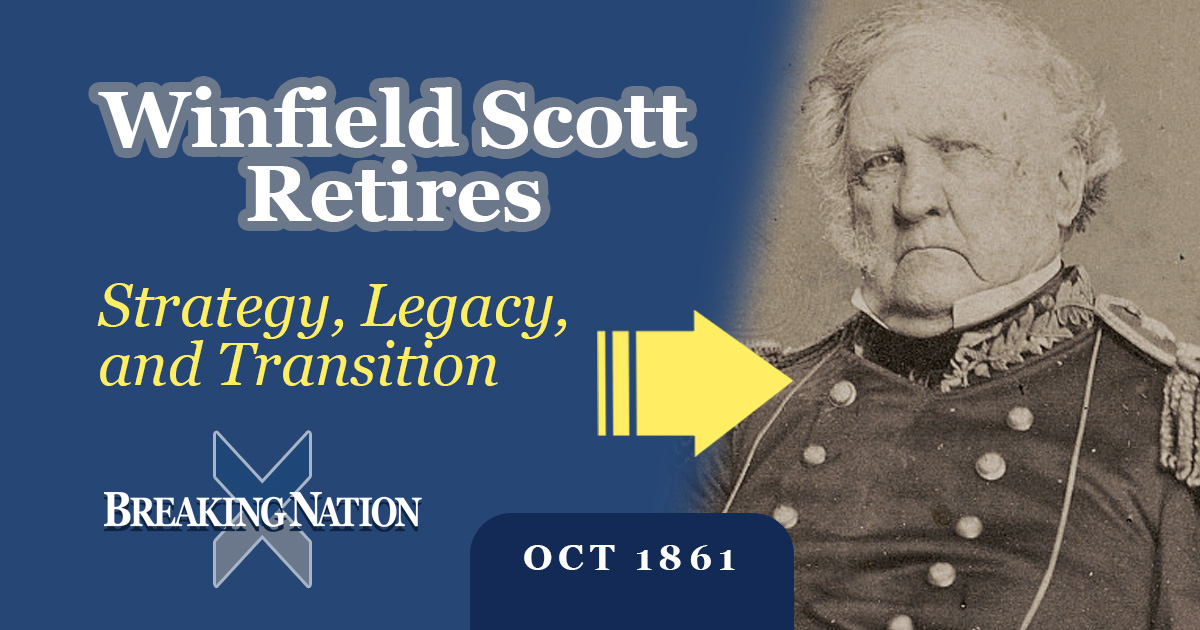End of an Era: Winfield Scott Leaves the Army

On October 31, 1861, General Winfield Scott, the venerable commander-in-chief of the United States Army, retired from his post after more than six decades of service. Scott’s retirement marked not only the end of an era but also a moment of profound transition for the Union Army in the early months of the Civil War. Known as the “Grand Old Man of the Army,” Scott had been a towering figure in American military history, shaping the professional army from the War of 1812 through the Mexican-American War, and ultimately guiding the nation’s military strategy as the Civil War erupted. His departure was significant for both symbolic and practical reasons.
Symbolically, Scott’s retirement underscored the passing of the old guard. At the time of his departure, Scott was 75 years old, and though he had long dominated military thinking in Washington, his age and declining health limited his ability to execute the rapidly evolving demands of modern warfare. Scott’s career had been defined by meticulous planning, personal valor, and an encyclopedic understanding of military logistics and strategy. His presence lent gravitas and stability to an army suddenly thrust into the chaos of civil conflict, and his departure left a vacuum in experience that the Union would struggle to fill in the critical early years of the war.
Practically, Scott’s retirement had immediate consequences for Union military operations. He had been the architect of the Anaconda Plan, a strategic blueprint aimed at suffocating the Confederacy through naval blockades and control of the Mississippi River. Though initially criticized for its perceived caution, the plan ultimately provided a framework for Union strategy throughout the war. With Scott’s retirement, this strategic vision passed to younger generals, most notably George B. McClellan, whose execution of the plan would reflect his own cautious temperament and, at times, depart from Scott’s precise calculations. The transition highlighted the tension between experience and ambition in a wartime command structure.
Moreover, Scott’s exit reflected broader challenges in Civil War leadership, where political considerations and personal ambitions increasingly influenced appointments and command decisions. His departure removed a stabilizing force in the War Department and opened space for ambitious officers to assert themselves in ways that would shape the trajectory of the Union war effort. In short, the retirement of General Winfield Scott represented both a symbolic and practical turning point: the end of a legendary military career and the beginning of a new, uncertain chapter in the Union Army’s leadership during the nation’s most profound crisis.
Breaking Nation: A Civil War Podcast explores the American Civil War, its turning points, and our national memory. Discover full episodes, transcripts, and resources at www.breakingnation.com — your destination for in-depth Civil War podcast content and fresh perspectives on America’s past. Listen on Apple Podcasts, Spotify and Amazon Music.




